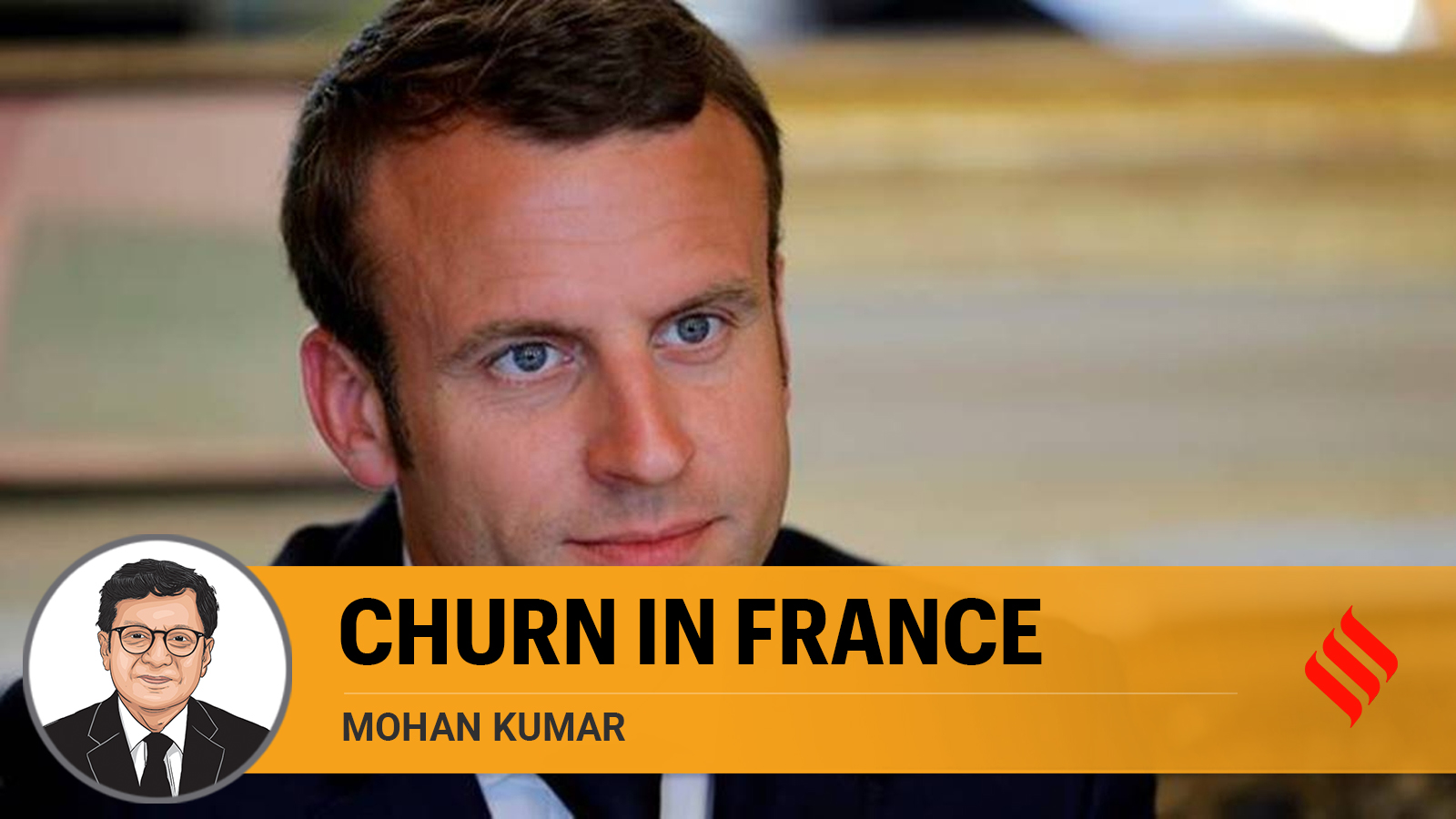French President Emmanuel Macron is nothing if not a gambler. It may be recalled that he stormed to power in 2017 by taking a huge risk: He set up a new party which he claimed belonged neither to the left nor the right and in so doing, hollowed out the traditional left and the right parties in France. In many ways, the chickens are coming home to roost for Macron.
The present political landscape in France, therefore, has virtually no space for moderation. Macron’s main reforms, like the ones on pensionable age, have been extremely unpopular. Remember also the mass protest of the yellow vests in 2018 which erupted because of Macron’s green tax on fuel. It was, therefore, not surprising that Macron lost his legislative majority in parliament in June 2022. Since then, he has struggled to get anything done in the fractious French parliament.
When European elections took place in June therefore, there was no realistic prospect of Macron’s party winning them. Poll after poll said the far-right party of Marine Le Pen would win. Win she did. Macron then surprised everyone by calling for snap legislative polls. However, elections called by Macron will most certainly see him lose his existing position either to the far right or to the far left. So, why did Macron call for snap polls? For one thing, he still hopes that the French people will hesitate to vote for extreme parties. For another, he believes a stint in the government will show the extreme parties for what they are.
The trouble is that Marine Le Pen has been carrying out a process of “de-demonisation” of her party (National Rally) and has made statesmanlike comments on burning issues of the day. Marine Le Pen no longer says France must get out of the EU; she hopes to work with other like-minded leaders like Giorgia Meloni of Italy. Le Pen, however, is expected to be tough on immigration and favour economic nationalism. She is opposed to globalisation and multiculturalism.
The parties of the left have cobbled together a “new popular front” which will fight the legislative elections on promises like retirement at 60 years, increasing minimum wages, raising public sector wages, cutting income tax and introducing a wealth tax for the rich. Never mind that all this will be calamitous for France which already has a public debt to GDP ratio of 110 per cent.
While it is hard to predict precisely the elections on June 30 and July 7, a two-step process in France, some things may be said with reasonable certainty. One, it is hard to see Macron’s party get an absolute majority. Two, while Macron will continue as President (these are legislative elections and not presidential) he will be forced to “co-habit” with a prime minister from a different party. That looks likely to be the young Jordan Bardella who has been designated by Marine Le Pen. She is eyeing Macron’s position in three years’ time when presidential elections are due. A hung parliament is also a possibility deepening the political uncertainty in France.
France is the second most important economy in the EU and the only European country now which possesses nuclear deterrence and is a permanent member of the United Nations Security Council. The outcome of the snap poll called by President Macron could have the following geopolitical ramifications for Europe and beyond.
One, if as expected, there is “co-habitation” between a Prime Minister belonging to the far-right (or far-left for that matter) and President Macron, then France will be too weak to drive EU’s foreign and security policy.
Two, if the far-right or the far-left wins, this may also bring France into direct confrontation with Brussels on EU membership obligations.
Three, it is well known that the Franco-German engine drives the EU. Indeed, the German Chancellor has already said that he hopes Le Pen’s party will not win in the elections. The Franco-German engine will sputter and may stop altogether.
Four, France’s commitment to the war in Ukraine may waver. Marine Le Pen has ruled out French troops in Ukraine and her priority will be funding her domestic agenda in France not military aid to Ukraine. Five, the far-left parties have taken a pro-Palestinian position on the Gaza issue that has made the French Jews and Israel very worried.
Finally, we may also be looking at a France and consequently, an EU which is anti-immigration, economically more protectionist and inward-looking. Six, the combination of a possible Trump in the White House and a geopolitically weak EU cannot but be welcomed by powers like China and Russia.
The writer is a former Indian Ambassador to France and is currently Dean/Professor at O P Jindal Global University. Views are personal



